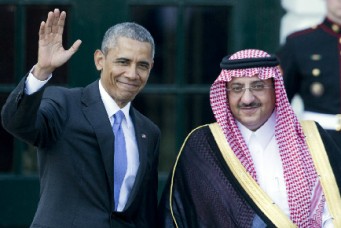The Shape of Things to Come
What is a revolutionary foreign policy? Egyptian Foreign Minister Mohamed Kamel Amr provided a broad sketch during a talk in March at the American University in Cairo. With a battery of foreign ambassadors listening attentively from the front rows, Amr spoke reassuringly of continuity. Egypt’s foreign policy, he noted, has seen no dramatic changes since former President Hosni Mubarak was toppled in the January 25, 2011, revolution.
What is a revolutionary foreign policy? Egyptian Foreign Minister Mohamed Kamel Amr provided a broad sketch during a talk in March at the American University in Cairo. With a battery of foreign ambassadors listening attentively from the front rows, Amr spoke reassuringly of continuity. Egypt’s foreign policy, he noted, has seen no dramatic changes since former President Hosni Mubarak was toppled in the January 25, 2011, revolution.
And yet, at the same time, Amr asserted the need for change. During the Mubarak decades, he explained, “stability” rather than sustainability was the Egyptian government’s priority. But the result was “real stagnation,” as he put it—an apparent reference to the domestic political and economic malaise that gradually diminished the country’s regional clout. “Egypt was an international leader and was powerful from the era of Mohammed Ali to our success in the 1973 war,” Amr said. “But what has happened from the 1980s until now? After being unique in our own ideas and thoughts and leading the region, at times the whole world, we started to be followers.”
Whether or not that was meant as a swipe at Mubarak’s tight ties with the United States, many in the audience—and beyond—wonder about the future of Egypt’s relations with the U.S., and with Israel, especially after Islamists won a majority in Egyptian parliamentary elections earlier this year. Indeed, there have been calls across the political spectrum for Egypt to demand changes to the 1979 Egyptian-Israeli peace treaty. Amr stopped short of forecasting a dramatic breach, but called the framework of ties with Israel “very old,” and added, “We need a new basis to build this relationship on.”
Amr downplayed the diplomatic brouhaha that ensued after Egyptian authorities stormed the offices of international Non-Governmental Organizations, notably pro-democracy groups funded by the U.S. government, and launched criminal investigations into their activities. Yet, Amr seemed to echo a widely held sentiment in Egypt that ties with the U.S. must be reappraised. Amr complained that Washington’s $1.3 billion in annual military aid to Egypt “distorts the nature of bilateral relations.” Aid, he argued, should be temporary, not permanent, and never the basis of a nation’s foreign relations.
A former ambassador to Saudi Arabia who has also served a stint at the World Bank, Amr dropped additional hints at what may be the contours of Egypt’s future foreign policy. He advocated stronger relations with Asia and particularly with China, and noted that he has traveled extensively in Asia as well as in Africa in his capacity as foreign minister. He also noted that Egypt’s ambassadors have been “very active” in expanding economic relations with Brazil, China, and India. He said that Egypt is currently pursuing cooperation with Libya and Sudan, and an expansion of cooperation with Nile River Basin states. Not to forget Egypt’s Arab neighbors, with whom Cairo is eager to develop a closer bond. Amr said that he speaks with his counterpart in Tunisia—where an anti-regime revolt in December 2010 launched the Arab Spring—about twice a day.


